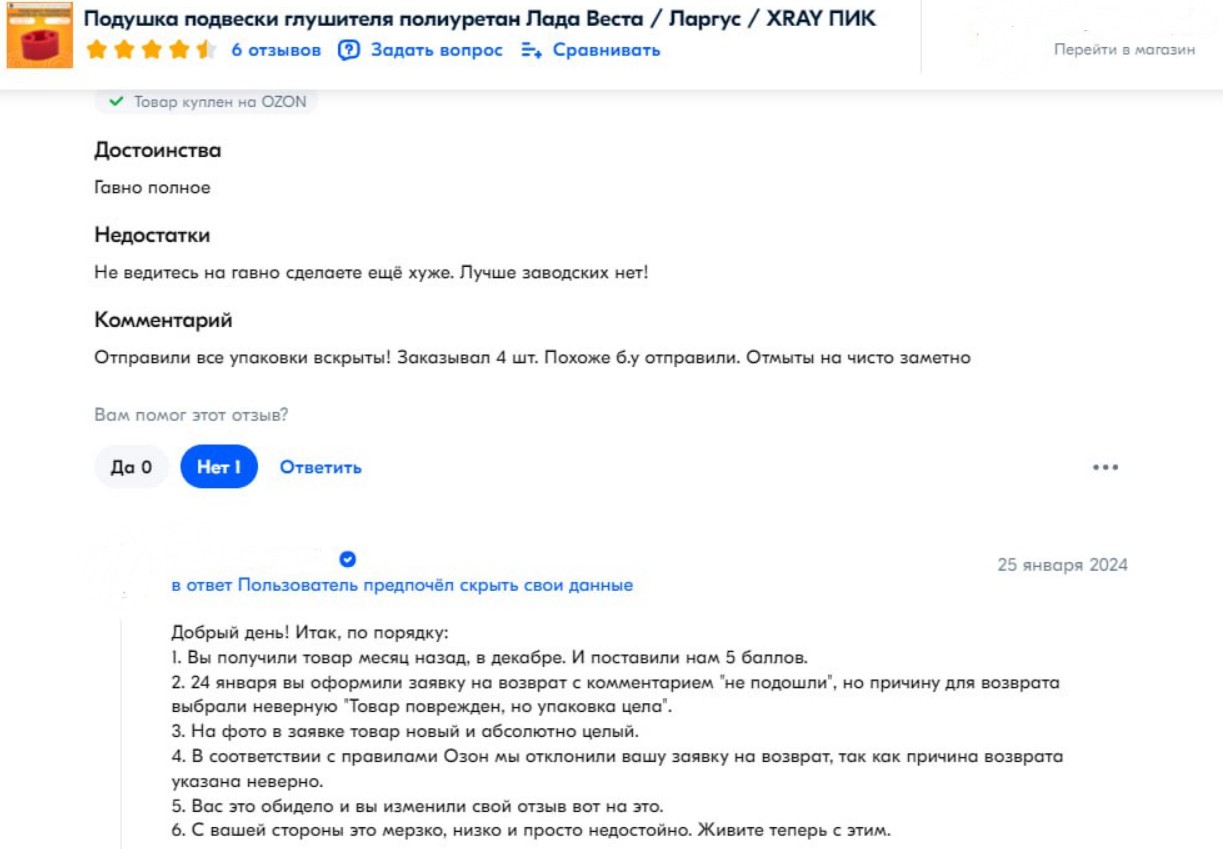надо срочно сюда
что-нибудь добавить
Это не "ещё один модуль отзывов". Это контентная машина для магазина на OpenCart: отзывы превращаются в SEO-посадочные страницы, медиа-галерею уровня маркетплейсов и инструмент повышения конверсии.
Самые продаваемые в январе 2026 года шаблоны и дополнения: Персональные данные, Стриж, Уведомление о cookie, шаблон Frame.
Новинки за январь 2026 года: Вместе дешевле, Автоматические вложения в письма, Добавление кастомных полей к товарам, Избранные заказы.

Любой способ продаж - собственный интернет-магазин или маркетплейс, имеет свои плюсы и минусы. Выбрав маркетплейс, вам не нужно создавать сайт с нуля или настраивать технические аспекты, такие как подключение платёжных сервисов. Однако интернет-магазин, который можно бесплатно создать с помощью Opencart, позволяет продавать эксклюзивные товары, создавать лояльность среди клиентов и действовать по своим правилам.
На маркетплейсе оптимально и выгодно продавать товары с большой наценкой или те, которые пользуются популярностью. Примерами могут быть бытовые товары. Важно, чтобы объемы продаж, обороты и наценка покрывали расходы на доставку, хранение, комиссии и скидки. Товар должен быть простым, понятным и не требовать подробных консультаций. Также удобно, если склады или пункты приема товаров маркетплейса расположены близко к вам. Необходимо учитывать, что маркетплейсы могут взимать штрафы за несвоевременную поставку товаров на склад и плату за хранение товаров на своем складе.
Лучше продавать в своем интернет-магазине
Плюсы интернет-магазина на Опенкарт
К выигрышным моментам интернет-магазина по сравнению с маркетплейсом относятся:

Интернет-магазин предоставляет возможность более глубокого анализа продаж, обеспечивает высокую маржинальность и укрепляет лояльность к бренду. Однако для его успешного функционирования требуется значительное финансовое вложение в рекламу, контроль за логистикой и обеспечение технической и сервисной поддержки.
Маркетплейсы, с своей стороны, обеспечивают доступ к более широкой аудитории, создают уверенность у клиентов в вашей надежности как продавца, а также берут на себя логистическую и сервисную поддержку. К их недостаткам можно отнести жесткие правила, высокие комиссии, интенсивную конкуренцию и риск демпинга.
При выборе между интернет-магазином и маркетплейсом рекомендуется собрать информацию о том, какие товары и категории наиболее успешны, на каких площадках и в какое время они пользуются спросом. Если вы остановитесь на собственном магазине - рекомендуем мы рекомендуем Вам использовать нашу бесплатную версию Opencart - ocStore 3.0.3.7. Она основана на сборке ocStore от opencartforum.com.
Отличия с оригиналом ocStore: удалены ненужные регионы, модули, загрузка данных с внешних серверов, исправлены ошибки. Подробнее об этой сборке можно прочитать на нашем форуме по Опенкарт.
Отличия с оригиналом Opencart: полностью русифицирован и включает в себя целый ряд улучшений по сравнению с оригинальным OpenCart. Вместе с тем, как и сам OpenCart, бесплатные, имеет открытый исходный код и поставляется в виде дистрибутива уже готового к установке на хостинг.
Обратите внимание - у нас есть несколько модулей, которые позволяют выгружать товары, заказы и прочее из вашего магазина на Опенкарт в маркетплейсы Ozon, Avito, Wildberies. А еще вы можете быстро сделать свой собственный маркетплейс со своими правилами на базе модуля "Торговая площадка".